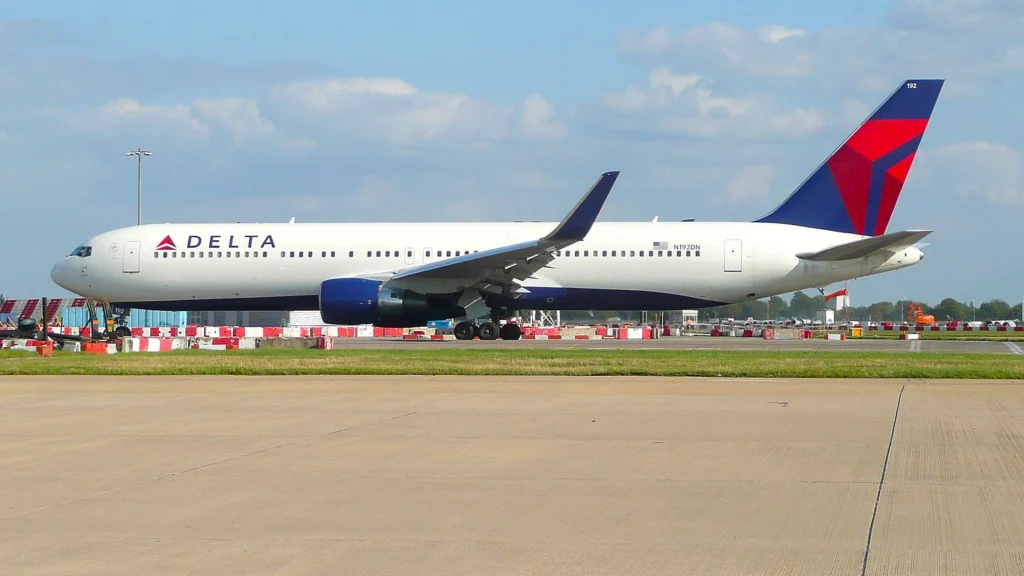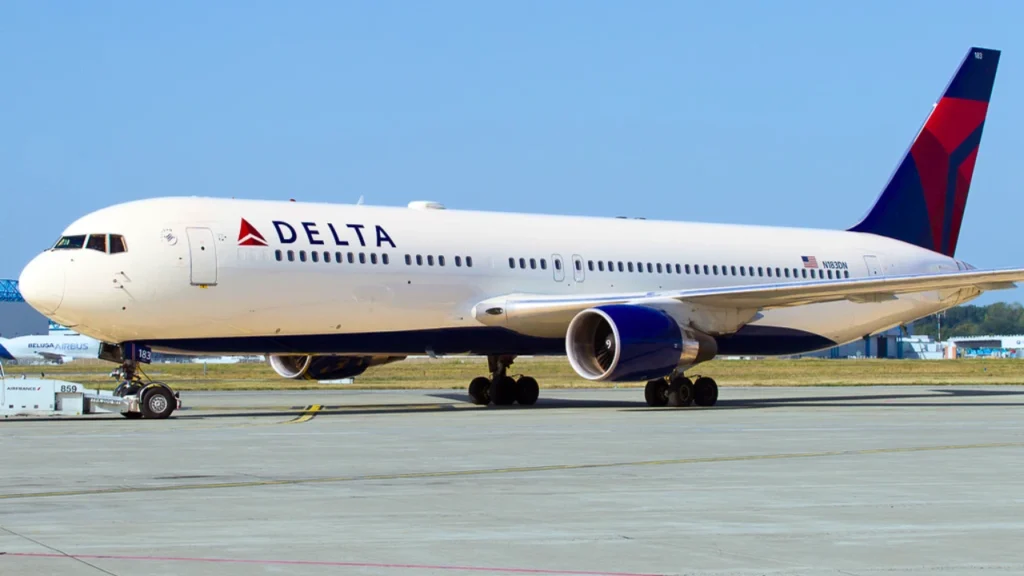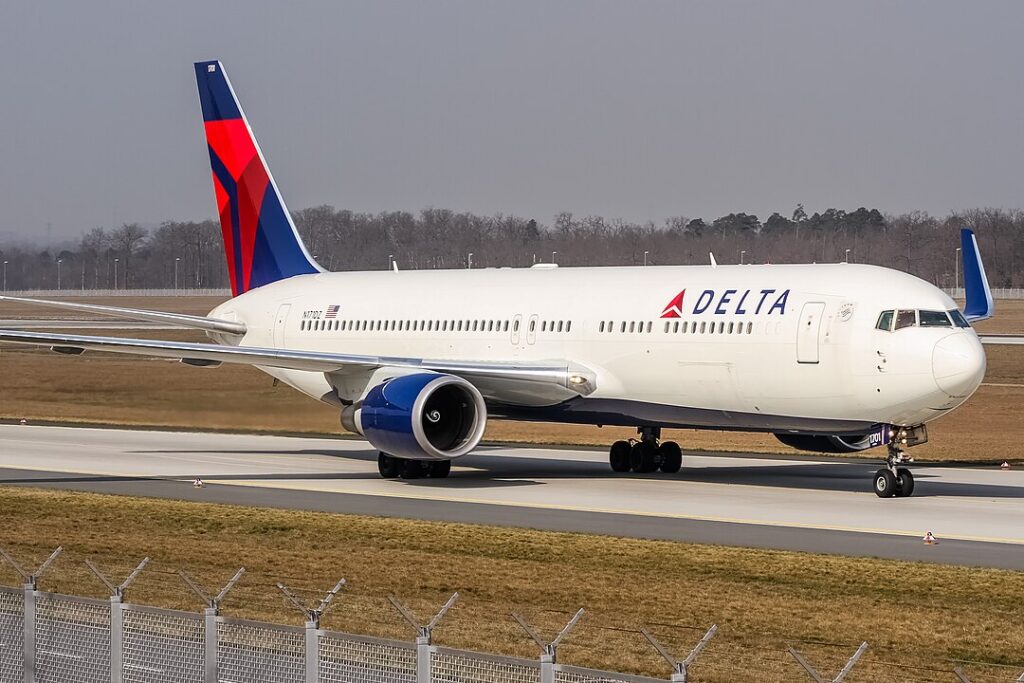
ATLANTA- Delta Air Lines (DL) will end its 34-year nonstop flights from New York (JFK) to Brussels (BRU) on January 6, 2026. The airline shifts focus to year round flights from Atlanta (ATL) starting March 8, 2026, after a brief pause in service.
Europe marked Delta’s weakest region this summer, with executives citing softer economic demand and peak travel moving to June and fall months.
Premium cabins drove profits, while main cabin yields dipped, prompting network adjustments like the Brussels route change.
 Photo: By John Taggart from Sunbury on Thames, Middlesex – lhr20090817 001, CC BY-SA 2.0, https://commons.wikimedia.org/w/index.php?curid=31810601
Photo: By John Taggart from Sunbury on Thames, Middlesex – lhr20090817 001, CC BY-SA 2.0, https://commons.wikimedia.org/w/index.php?curid=31810601Delta Ends New York to Brussels Flights
Delta’s New York to Brussels route, launched in 1991, ran year round on Boeing 767-300ER aircraft. The service paused briefly during the pandemic but resumed steadily.
This cut marks Delta’s second transatlantic retreat from New York in a year, following the Munich (MUC) suspension, both Lufthansa Group hubs.
The airline cites better alignment with customer demand for the Atlanta pivot. Brussels (BRU), a key government and business hub, loses direct New York ties, forcing connections via partners like KLM to Amsterdam (AMS).
Air France offers Paris (CDG) to Brussels rail links, while Virgin Atlantic skips short-haul from London (LHR). Brussels Airlines and United Airlines (UA) from Newark (EWR) fill gaps through the same joint venture.
Delta prioritizes a comprehensive New York network for corporate and loyalty gains, yet quirks persist.
The carrier skips Asia routes from New York, like the unclaimed Tokyo Haneda (HND) slots in 2024, now served by American Airlines (AA). Frankfurt (FRA) endures despite Lufthansa’s dominance.
 Photo: Aero Icarus | Flickr
Photo: Aero Icarus | FlickrDelta’s European Summer Performance
Delta executives revealed on September 11, 2025, that Europe served as the carrier’s lowest-performing region in the third quarter, overlapping much of the summer.
President Glen Hauenstein noted that July and August no longer peak for high-end leisure travel to Europe.
Families now favor June trips to dodge school conflicts, while non family travelers opt for September and October to avoid high costs and heat. This shift yields a strong sequential uptick in October bookings across the Atlantic.
Economy cabin demand weakened most, dragging overall yields below expectations. Premium products, however, excelled with robust unit revenues, leading every segment.
Hauenstein stressed that premium travel generates Delta’s core profits, offsetting main cabin shortfalls. Corporate sales hit post pandemic highs in September, bolstering recovery.
According to OMAAT, this main cabin pressure stems partly from travelers seeking value amid rising fares.
A spread-out European season benefits airlines long term. Demand now stretches from April to October, easing pressure on peak summer capacity.
Airlines once built fleets and crews around July-August surges, leaving idle resources in shoulder months. Extended schedules now smooth operations and stabilize staffing.
 Photo: Clément Alloing
Photo: Clément AlloingCompetitive Pressures
Lufthansa Group’s strength in Brussels challenges Delta’s foothold. United bolsters the alliance with Newark service, while Delta’s joint venture partners limit seamless options. This mirrors Munich cuts, where competition eroded viability.
Delta maintains Europe as a profitable entity overall, despite summer dips. The carrier posted $4.7 billion net income in 2024, fueled by loyalty programs over direct passenger revenue.
Cost per available seat mile hit 19.3 cents, with passenger revenue at 17.65 cents, yet total revenue reached 21.37 cents through ancillaries.
 Photo: By Oliver Holzbauer – N171DZ Delta Air Lines Boeing 767-332(ER)(WL) coming in from New York (KJFK) @ Frankfurt (EDDF) / 08.04.2015, CC BY-SA 2.0, https://commons.wikimedia.org/w/index.php?curid=40669627
Photo: By Oliver Holzbauer – N171DZ Delta Air Lines Boeing 767-332(ER)(WL) coming in from New York (KJFK) @ Frankfurt (EDDF) / 08.04.2015, CC BY-SA 2.0, https://commons.wikimedia.org/w/index.php?curid=40669627Future Outlook
Delta rationalizes economic capacity without harming premium growth. Executives view spread out demand as a net positive, enabling longer seasonal routes. This Brussels shift exemplifies adjustments to match evolving patterns, ensuring sustained transatlantic leadership.
Brussels service resumes via Atlanta in spring 2026, bridging the two month gap. Travelers gain year-round access from Delta’s largest hub, potentially boosting connectivity to the US South.
Delta navigates European challenges by leaning on premium strength and corporate rebounds. Route tweaks like New York-Brussels underscore adaptive strategies in a dynamic market.
Stay tuned with us. Further, follow us on social media for the latest updates.
Join us on Telegram Group for the Latest Aviation Updates. Subsequently, follow us on Google News
Stay tuned with us. Further, follow us on social media for the latest updates.
Join us on Telegram Group for the Latest Aviation Updates. Subsequently, follow us on Google News
Delta Cuts 767 Operated Long-Haul Route from Los Angeles
The post Delta to End This Transatlantic Route from New York After 34 Years appeared first on Aviation A2Z.

















